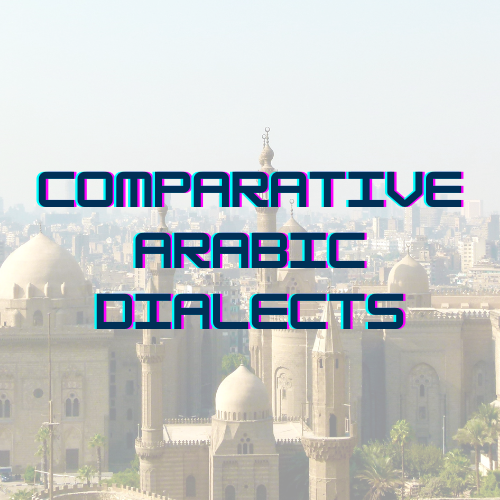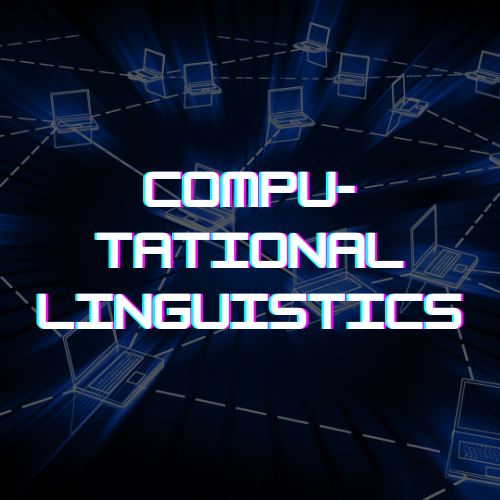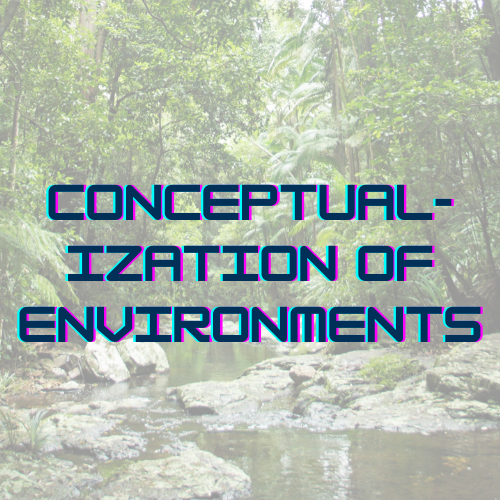There are a lot of important conversations going on in the world today. How can we reduce emissions and protect the planet? Fight inequality and recognize the dignity of all human beings? Lift up women and girls with equal rights and opportunities?
We all want to make a difference. But, how can we contribute effectively when these conversations are going on in hundreds of languages, with thousands of cultural nuances?
Studies show that learning a second language can make you a better leader and help you earn more money in your career. Our eclectic collection of classes and wide-ranging research shows just how fascinating it can be to pick them up. We promise — the days of getting rapped on the knuckles for incorrectly reciting grammar rules are long gone.
For example, Natalie Khazaal, an associate professor of Arabic and Arab Culture, says she loves teaching her course on globalization, culture, and the Middle East “because it presents an opportunity to talk about the most burning issues of our time, including minorities, refugees, the health of democracy, and the future of the planet.”
Satomi Suzuki-Chenoweth, a senior lecturer of Japanese and Linguistics, is most passionate about her online elementary Japanese course because of the potential she sees in online learning. It makes language learning more accessible, she says, which can increase social justice and equity in the world.
From Chinese ecocinema and historical memory to zombie tropes and New Asian Fantasy, the only question is, which topic will you explore first?
I'm interested in...

Aki Matsushima
Lecturer of Japanese
Did you know?
Practicing the Japanese tea ceremony is a lifelong learning process, because it incorporates broad aspects of Japanese culture, such as ceramics, architecture, textiles, and history, says Matsushima. You can still be considered to be a "young one" in your 60s.
Learn more in the Atlanta Tea Ceremony Club, which holds lessons three times a month on Sundays.
Change the conversation: Learning and practicing the Japanese tea ceremony evokes conversation and community because it requires face-to-face instruction, says Matsushima, and you can never understand it with books alone. The four central doctrines of the tea ceremony are "wa" (harmony), "kei" (respect), "sei" (purity), and "jaku" (tranquility).

David Marcus
Lecturer of Arabic
Did you know?
People from Eastern Arab countries such as Libya and Egypt do not understand the spoken Arabic dialects of Western Arab countries like Tunisia, Algeria, and Morocco. So, to claim fluency in Arabic, Marcus says, you need to understand formal Arabic and at least one spoken dialect. This is because formal Arabic is only written and not spoken — no other language in the world is like Arabic in this respect.
Learn more in Ask an Arabic Teacher on Youtube or these videos in each dialect.
Change the conversation: The U.S. State Department has designated Arabic as a critical language. Some places where you can make an impact with Arabic language skills are in the U.S. State Department or U.S. military, or by working as a teacher or translator, Marcus says. He performs Arabic music in the Atlanta area and volunteers his time to help translate for Syrian refugees at medical appointments.

Britta Kallin
Associate Professor of German Studies
Did you know?
Classic fairy tales have been rewritten over and over, shifting the focus each time to social issues of the period. In the late 1990s through early 2010s, there was a revival in fairy tale remakes in the US and Europe, Kallin explains. German and Austrian authors re-envisioned the roles of female, male, nonbinary, and non-human characters in their novels, short stories, and plays, reimagining the roles that fairy tale plots and messages can play in the 21st century.
Learn more in Kallin's class GRMN 3055 German Fairy Tales: From the Grimm Brothers to Disney, or read Fairy Tales Transformed? by Cristina Bacchilega.
Change the conversation: Examining the social justice issues reflected in these rewritten versions of fairy tales can help us work towards diversity, equity, and inclusion by decolonizing the dominant, and often patriarchal, narratives in Western curricula, Kallin says. Viewing the world and our roles in it from more complex, historically informed, and non-Western perspectives helps us foster empathy and understand how people with different backgrounds experience society in unique ways.

Sonia Serafin
Adjunct Lecturer at Georgia Tech Europe
Did you know?
The Leonardo Program helps students take full advantage of their Georgia Tech Europe study-abroad experience, says Serafin, by taking them out of the classroom to experience history and art with opportunities such as free access to museums, visits to archives, concerts, and rehearsals, and travel to nearby countries.
Learn more in one undergraduate student’s blog post about her experience in the Leonardo Program, which she calls "a true hidden gem."

Juan Rodriguez
Associate Professor of Spanish
Did you know?
Documentary is supposed to be persuasive, Rodriguez says, so we have to ask what the images of Havana in ruins are trying to convince us of. When Cuban filmmakers highlight decaying urban infrastructure, they are really using it to question the shortcomings of the Cuban revolution, he says.
Learn more in Rodriguez's paper on Cuban Ruinologies.
Change the conversation: Studying the rhetoric of decay in Cuban documentaries can help us understand how a different society uses art and cinema to question reality and express concerns about something difficult to change, Rodriguez says.

Seung-Eun Chang
Lecturer of Korean
Did you know?
Cultural issues in Korean society have affected people's languages, resulting in neologism (the creation of newly coined words or expressions) that permeate the cultural conversation, Chang says.
Learn more in Chang's virtual Korean media curation project, which has been integrated into Korean courses such as KOR 4060 Media and Public Culture and KOR 4699 Undergraduate Research.
Change the conversation: Chang's media curation project addresses the cultural issues in Korean society that transform people's perspectives, language, and lifestyles. Neologisms such as "honjok" (a group of single people) is one example. Discussing societal issues such as these in the context of historical background, global perspective, and the struggle between tradition and changing values helps us broaden our global perspective beyond our local and limited vision, Chang says.

Jin Liu
Associate Professor of Chinese
Did you know?
Most Chinese ecocinema films are made independently, which means they are produced outside the state studio system and ideological censorship, Liu says. Environmental protection is a sensitive topic in public discourse in China, and the state strictly monitors unofficial and independent media productions that expose ecological issues.
Learn more in the Chinese LBAT program, which offers field trips around environmental awareness and sustainable development in contemporary China. You can also read more in Chinese Ecocinema: In the Age of Environmental Challenge or Liu's published works on "Dislocation and Displacement: An Analysis of Wang Jiuliang's Plastic China" and "A Cinematic Presentation of Trash: An Interview with Wang Jiuliang."
Change the conversation: Alumni from the Georgia Tech Chinese program work in the State Department, at international companies, and as English teachers in China and Taiwan, says Liu. Another works at the Georgia Tech Innovation and Technology Commercialization Professionals program, coordinating a new pilot course program for Chinese professionals.

Hongchen Wu
Assistant Professor of Chinese
Did you know?
Languages may seem intuitive to native speakers, but they are not easy for computers to learn, Wu says.
Learn more in any language or linguistics program you find interesting, says Wu. Georgia Tech is an excellent place for collaboration between the School of Modern Languages and other engineering and computing units to advance the study of computational linguistics.
Change the conversation: Studying the computational mechanisms of languages — the way humans learn and process them — can provide insight into human thinking and the laws of human cognition, Wu explains. Plus, engineering and computational linguistics-related jobs have grown enormously in recent years, she says.

Annual Event
School of Modern Languages
Did you know?
The Global Media Festival is the Georgia Tech School of Modern Languages’ annual film and discussion series focusing on sustainability across languages and cultures. The 2023 festival will explore the theme “reduced inequalities within and among countries,” one of the UN sustainable development goals.
Learn more at https://globalmediafest.modlangs.gatech.edu/
Change the conversation: The Global Media Festival helps students become global citizens by teaching them about sustainability issues across languages and cultures, says Amanda Weiss, the 2021-2022 festival director and assistant professor of Japanese. Introducing students to an international group of scholars, filmmakers, and artists lets them explore the diverse cultural, social, and linguistic frameworks that inform sustainability issues around the world, she adds.

Lu Liu
Assistant Professor of Chinese
Did you know?
There was a brief burst of interest in bacteriophage therapy in 1950s China due to the unexpected convergence of culture, medicine, and ideology that framed it as a communal, ecological, and thus truly socialist cure, Liu says. Now, there has been a new surge in public interest in phage therapy in the face of the growing threat of antimicrobial resistance, because phage therapy can still succeed where antibiotics fail.
Learn more in Félix D'Herelle and the Origins of Molecular Biology. Or, check out Georgia Tech’s China Summer Program, where students have three weeks to explore Hong Kong, including Hong Kong University and its medical humanities program. Georgia Tech also partners with Emory University and Peking University, which has one of the best medical humanities programs in China, through the Biomedical Engineering Ph.D. Program.
Change the conversation: Studying the history of virology is a reminder of the global and multilingual framework where biomedical knowledge gains forces, spreads, and mutates, Liu explains. People's perceptions of health, disease, and cure are embedded in their cultural contexts, and we can only fully understand biomedicine by considering these historical contingencies.

Keung Yoon Bae
Assistant Professor of Korean Studies
Did you know?
South Korean esports are successful because young Korean people have far better access to games and gaming technology, Bae says. While people elsewhere in the world often face financial barriers, high-level PC gaming is available in South Korea for about one dollar an hour in the ubiquitous internet PC cafes.
Learn more at Georgia Tech's Gaming & Esports Applied Research group. Or, attend an event: Atlanta's State Farm Arena recently hosted the semi-finals for the League of Legends World Championships, where three Korean teams and one Chinese team went head-to-head for their tickets to the finals.
Change the conversation: Translators are fixtures at major esports events, working for players giving interviews on-stage or to journalists. As esports continues to become more established as competitive entertainment alongside traditional sports, Bae says, the need for translation will continue to grow.

Andrea Jonsson
Assistant Professor of French
Did you know?
Our voices provide information about age, race, gender, geographic origin, and more, Jonsson says. In language learning, voice studies can include expanding our awareness of sound, examining narrative voice in literature, or analyzing musical artists, activists, and journalists whose public voices engage with culture in innovative ways.
Learn more in Jonsson's published work.
Change the conversation: Jonsson researches vocal intimacy and vulnerability in French pop music, podcasts, performances, stand-up comedy, and media. She says that understanding how we think, talk about, and engage with popular culture can spark conversation and enhance our professional and personal connections.

Cecilia Montes-Alcalá
Associate Professor of Spanish and Linguistics
Did you know?
The term "Spanglish" is the popular name for Spanish-English code-switching. While it has traditionally been used demeaningly — implying that people who engage in that practice don't speak either of the two languages well — it is quite the opposite, Montes-Alcalá says. To code-switch, one must be highly competent in both languages to prevent grammatical mistakes. It is far from a random occurrence.
Learn more in Montes-Alcala's class SPAN 4165 Bilingualism in the Spanish-Speaking World or the Puerto Rico LBAT program. She also recommends Bill Santiago's book, Pardon my Spanglish, and his Youtube videos.
Change the conversation: Being bilingual means speaking two languages and living in two cultures. Understanding that you can use both languages in your daily life because you need to express yourself in both cultures is a gift, Montes-Alcalá says.

Miguel Rosas Buendia
Assistant Professor of Spanish and Latin American Studies
Did you know?
Modern capitalist societies tend to think that natural resources are mostly (or only) for industrial exploitation, Buendia says. By examining the history of ideas of nature, the environment, and industry, we can understand that these notions are socially constructed and can change in the face of our climate challenges.
Learn more by attending events related to environmental issues and watching documentaries from around the world. The Puerto Rico LBAT program also includes class topics and cultural activities related to the environment and how local people promote sustainable practices.
Change the conversation: by understanding that notions and categories are not firmly fixed and have a fluidity that is worth our attention, Buendia says.

Dina Khapaeva
Professor of Russian
Did you know?
Historical memory is the language of politics today, Khapaeva says. Russia's war against Ukraine is not a sudden shift in Kremlin politics. It has been prepared by a twenty-year history to convince Russians that they must reconstruct the Russian-Soviet empire and conquer the West.
Learn more in the Russian Program, which offers classes on the relationships between Russian historical memory, culture, and politics.
Change the conversation: Understanding the Russian language and culture is key to understanding the country's technological innovations, Khapaeva says. Bringing these skills to the State Department and other enterprises interested in Russian tech can open new avenues for career advancement.

Amanda Weiss
Assistant Professor of Japanese
Did you know?
"New Asian Fantasy" is a new trend in speculative fiction, Weiss explains. It describes writers of Asian heritage who explore power, identity, and technology through science fiction, fantasy, and horror. Their works are often shaped by the author's relationship to the concept of "Asia + n," with "Asia" signifying the Asian culture, heritage, and literary tropes in their work and "n" representing the uniqueness of each writer's identity, lived experiences, and writing.
Learn more in Weiss's VIP on East Asian Media, where students can help produce the Hivemind publication or publish an original translation of a speculative fiction story.
Change the conversation: Learning about the transnational and hybrid trends in science fiction and fantasy can help us expand our understanding of the world, Weiss says. While speculative fiction is often associated with Anglo-American wizards and elves, there are many new and diverse trends in the genre. For example, Ken Liu's concept of "silkpunk" combines Asian technologies with East Asian and Western literary forms. Many novels in the "silkpunk" aesthetic have been published in the past ten years.

Natalie Khazaal
Associate Professor of Arabic
Did you know?
Speciesism is a type of prejudice against other animal species. The surprising fact about it, Khazaal says, is how invested humans are in preserving it. Animal agriculture is one of two leading causes of global warming and the destruction of the planet; yet we talk about fossil fuels much more than concentrated animal feeding operations (factory farming).
Learn more in movies like Cowspiracy and books like Why We Love Dogs, Eat Pigs, and Wear Cows. Or, browse the websites of organizations like Mercy for Animals and Anonymous for the Voiceless or local groups like National Black Vegans Coalition in Atlanta. For those who want to look into a degree that explores speciesism, check out the MA in International Studies on Media, Power, and Difference at Universitat Pompeu Fabra in Barcelona.
Change the conversation: Speciesism is at the heart of prejudice against other humans. If we let go of speciesism, we will let go of all other prejudices against humans, Khazaal says.

David Shook
Associate Professor of Spanish and Interim Chair of the School of Modern Languages
Did you know?
The zombie trope has grown across literature in many cultures around the world, Shook says. This is related to the growth in zombie media in TV, cinema, and video games that we have seen worldwide during this time.
Learn more by reading literature from other cultures. Whichever culture you are interested in, deeper aspects can be explored and revealed in their books and media.
Change the conversation: by mastering another language and, through it, an appreciation of another culture, Shook says. Any job in the U.S. or abroad can be enhanced by the ability to speak a second language and communicate successfully with clients who speak it, he adds.
